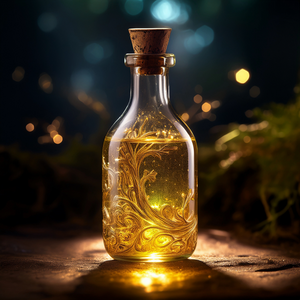The elixir of immortality
The elixir of immortality

For thousands of years, people from all cultures have been fascinated with the idea of special food, drink or medicine that can help them live longer, or even forever. The Greeks spoke of ambrosia, the food of the gods, which would grant the eater immortality, while in Norse mythology the gods ate golden apples to stay young. The Bible also tells of a tree of life in the Garden of Eden, with fruit that lets a person live forever.
Throughout history, many have tried to find a way to become immortal themselves. The ultimate goal of medieval alchemists was to find the “philosopher’s stone”: a mystical substance said to be able to turn ordinary metals into gold and silver, cure all illnesses and make one eternally young and immortal. In the east, ancient Chinese alchemists also spent hundreds of years trying to develop an elixir of immortality. The first emperor of China, Qin Shi Huang, known for his terracotta army, was obsessed with avoiding death and sent expeditions far and wide to find an elixir that would help him achieve this. But a key ingredient of these “elixirs of immortality” was cinnabar – or mercury sulphide – and it is thought that he ironically died of mercury poisoning at the age of only 49 in 210 BC.
Today we know that mercury is toxic and cannot make us immortal. But the quest for special foods or medicines that might help us live longer continues. From olive oil, grapes, blueberries and turmeric to eating less – these are only some of the foods, diets and supplements that science says are linked to having a longer, healthier life. It should be noted, however, that many of these diets have not yet been directly proven to extend lifespan in humans, so their effectiveness remains unclear. Moreover, we should always remember that nutrition is only one component of healthy ageing, and having a healthy lifestyle (e.g. getting regular exercise and sleep, finding ways to reduce stress and having a strong social network) is also important.
